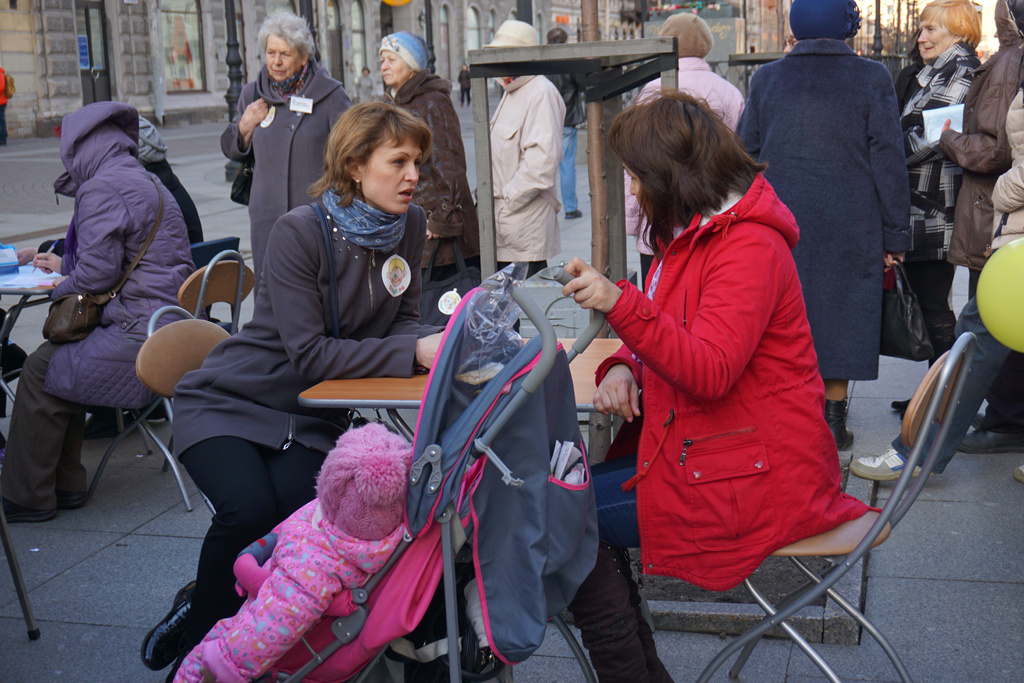
RVF is working with Rospotrebnadzor, the Russian federal agency responsible for immunization, as well as health officials of the city of St. Petersburg and a team of academic experts to address vaccine hesitancy in the Russian Federation. Vaccine hesitancy commonly refers to parents who have reservations about or opt out of vaccinating their children, but also more broadly, according to world-renowned vaccine researcher and RVF board member, Dr. Stanley Plotkin, vaccine-hesitant individuals are a heterogeneous group – including parents, non-parents, healthcare workers or even public officials- who hold varying degrees of indecision about specific vaccines or vaccination in general. RVF research in the city of St. Petersburg has shown that there are health care workers who do not effectively communicate the benefits of childhood vaccines to parents.
The lack of knowledge about essential children’s vaccines on the part of parents is a global phenomenon, which has serious public health repercussions, including “outbreaks of invasive Haemophilus influenzae type b disease, varicella, pneumococcal disease, measles, and pertussis, resulting in the unnecessary suffering of young children and waste of limited public health resources.”[i]
As part of a pilot program, RVF, with the support of Rospotrebnadzor, has launched an initiative to address vaccine hesitancy in St. Petersburg. The first step included the development of questionnaires used to survey parents and healthcare providers in children’s polyclinics in order to determine barriers to vaccination. In January 2016, 312 healthcare providers and educators and 314 parents were surveyed in children’s polyclinics . The major barrier to vaccination identified by parents was not having clear advice from physicians on whether to vaccinate their children.
The second step of the program included the development and implementation of planned remedial activities including education campaign to promote childhood vaccination among parents and health care workers.
In 2017, as part of this educational campaign, RVF has designed a brochure ‘Vaccination. Boosting Lifelong Immunity of the Child’, describing the benefits of immunization in layman’s terms to parents, and distributed 70,000 copies of this brochure among all St. Petersburg maternity wards to be offered to postpartum women. Also, RVF arranged for production of an animated film featuring Klepa (children’s favorite character) to help children and their parents understand the benefits of vaccines. The Federal Rospotrebnadzor has given their approval to disseminate it at the regional Rospotrebnadzor sites followed by its promotion at the federal level during World Immunization Week. Copies of the animated film are requested for all St. Petersburg pediatric outpatient clinics to be shown at the patients waiting areas.
In 2017-2019, in coordination with the Committee on Health and Rospotrebnadzor, RVF has provided financial and organizational support for postgraduate education courses on vaccination for physicians on the basis of the Children’s Scientific and Clinical Center for Infectious Diseases and for nurses on the basis of St. Petersburg Center for Postgraduate Education of Workers with Medical and Pharmaceutical Education. Training programs have been developed by certified specialists and duly approved for use in postgraduate education. In May 2018, the first 50 doctors graduated from the training course followed by first 30 nurses graduating later in the month. A similar course for both doctors and nurses was conducted in the fall of 2018 and 49 doctors and 24 nurses graduated in December 2018. Another course for 39 doctors and 24 nurses was held in February-April 2019. RVF plans to carry out a study on how the gained knowledge is applied in practice.
After the final step is completed, RVF and other program partners will review the results of the post-interventional survey and trends in coverage rates. This will help shape the potential expansion of the initiative to other population centers as a replicable model.
[i] Vaccine Hesitancy, Salmon, Daniel A. et al., American Journal of Preventive Medicine, Volume 49, Issue 6, S391 – S398